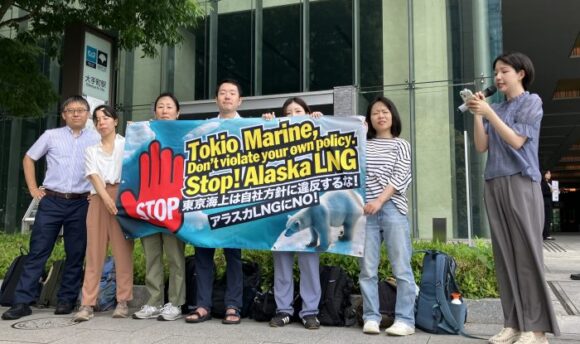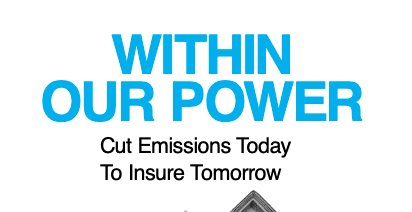This week, as the insurance industry convenes for the first Global Sustainable Insurance Summit in Los Angeles, 32 campaign groups of the Insure Our Future network have sent a letter to the 30 world’s leading fossil fuel insurers, detailing how they can accelerate the transition to a clean and just energy economy.
The call for insurers to make ‘polluters pay’ comes at a point when many families are struggling as they face a cost of living crisis, compounded by rising insurance premiums or loss of insurance cover completely in some high-risk areas as insurers attempt to limit their climate-related losses by passing them on to communities. For example, twelve major insurers have restricted climate-related coverage in California, causing losses in home values of $10-$32 billion. Tokio Marine Holdings, the largest Property and Casualty insurer of Japan, is included in the twelve insurers. The same twelve insurers are exacerbating climate risks, with $113 billion of investments in and $3.6 billion in annual underwriting income from fossil fuels collectively.
“The insurance industry is responding to the escalating climate emergency by increasing premiums or entirely withdrawing from regions at the frontline of the crisis. This further shifts the cost of climate change from the carbon polluters and their supporters to individual families and businesses.”
“While the insurance industry abandons climate-affected communities, many insurers continue to underwrite the expansion of fossil fuel extraction, fuelling the very crisis they have warned about for 50 years. No major insurance company has ruled out support for all new fossil fuel projects.”
Demands in the letter are as following:
- Immediately cease insuring new and expanded coal, oil, and gas projects.
- Immediately stop insuring any new customers from the fossil fuel sector which have not published a transition plan aligned with a credible 1.5°C pathway, and stop offering any insurance services which support the expansion of coal, oil and gas production even among existing customers. By the end of 2025, completely phase out all insurance services for existing fossil fuel company customers which have not published such a transition plan.
- Immediately divest all assets, including assets managed for third parties, from coal, oil, and gas companies which have not published a transition plan aligned with a credible 1.5°C pathway and scale up investments in a just, equitable, and rapid global transition to a clean energy economy.
- Immediately define and adopt binding targets for reducing your insured emissions which are transparent, comprehensive and aligned with a credible 1.5°C pathway.
- Explore ways to bring fossil fuel companies to court in order to make polluters rather than insurance customers pay for the growing costs of climate disasters.
- Immediately establish, and adopt as policy, robust due diligence and verification mechanisms to ensure clients fully respect and observe all human rights, including a requirement that they obtain and document the Free, Prior, and Informed Consent (FPIC) of impacted Indigenous Peoples as articulated in the UN Declaration on the Rights of Indigenous Peoples.
- Immediately bring stewardship activities, membership of trade associations and public positions as a shareholder and corporate citizen in line with a credible 1.5°C pathway in a transparent way.




